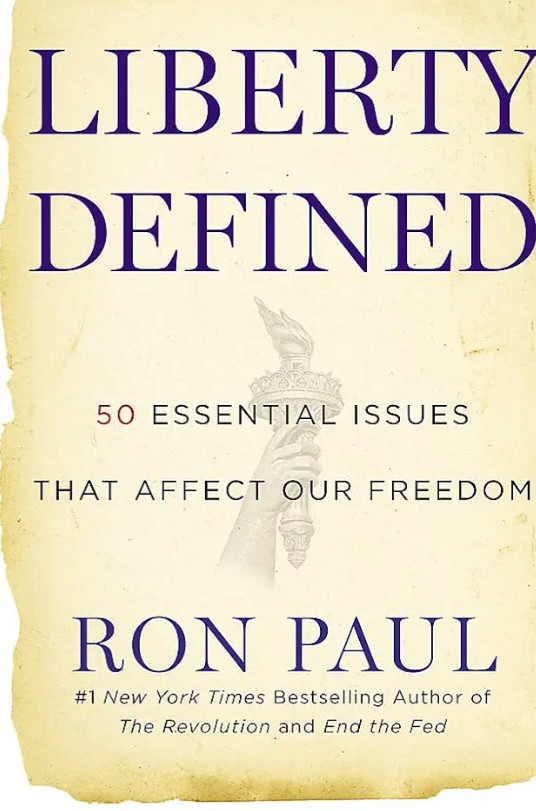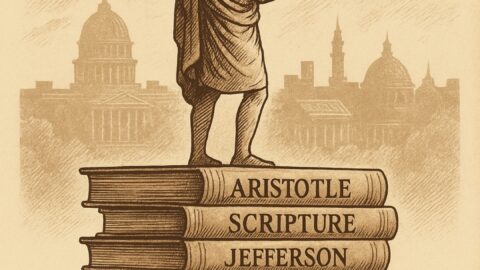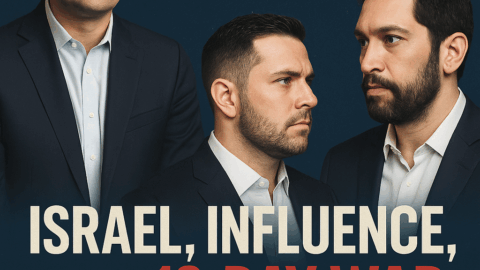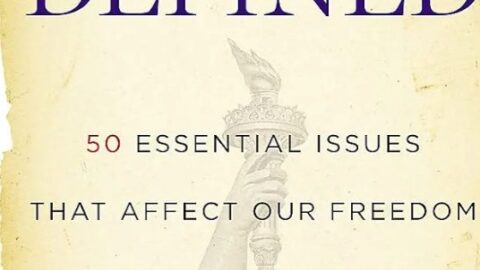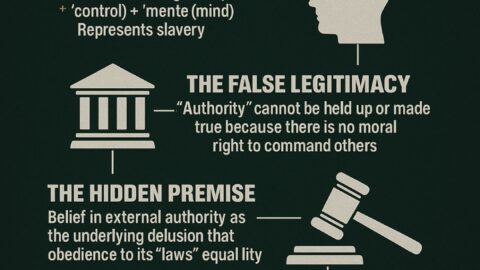Introduction: The Measure of a Policy
Ask one clarifying question of every law, program, and war: Does it expand the sphere of individual liberty or shrink it? That is the heartbeat of a liberty-first framework. It’s not anti-community or anti-compassion; it’s a recognition that prosperity and dignity flow from free people who bear responsibility for their choices—and from a government constrained to protecting rights, not managing life.
First Principles
- Non-Aggression: No person or institution may initiate force. Government exists to secure life, liberty, and property—not to engineer outcomes.
- Rule of Law & Constitution: Power must be limited, separated, and brought under transparent, predictable law.
- Decentralization: Push decisions closest to those affected. Centralization magnifies error, corruption, and culture war.
- Sound Money & Free Exchange: Prices and interest rates must speak honestly; manipulation breeds bubbles, bailouts, and hidden taxes (inflation).
- Civil Liberties Without Asterisks: Speech, privacy, due process, and conscience are not bargaining chips—especially in emergencies.
- Peaceful Foreign Policy: Commerce and diplomacy over coercion and crusade; wars require formal declarations and clear exits.
Why Liberty Works
- Moral: Freedom treats adults as moral agents, not wards of the state.
- Economic: Markets aggregate knowledge; voluntary exchange outperforms command.
- Social: Toleration and federalism lower the stakes of politics and reduce zero-sum conflict.
- Civic: Limited power curbs the temptations of surveillance, favoritism, and “emergency” overreach.
Policy Applications (From Principle to Practice)
1) Money & Markets
- End corporate privilege: No more “too big to fail”; bankruptcies clear malinvestment.
- Audit and constrain monetary manipulation: Transparency for central banking; allow currency competition or hard-asset constraints to discipline policy.
- Slash corporate welfare: Equal rules, no favors—end subsidies, targeted tax credits, and regulatory moats that protect incumbents.
2) Civil Liberties
- Restore due process: No indefinite detention without charge; narrow surveillance with real warrants and adversarial oversight.
- Defend speech you dislike: The cure for bad ideas is better ideas, not bans.
- Protect privacy by default: Limit data hoarding by state and contractors; end dragnet collection.
3) Justice & Social Policy
- End prohibitionist reflexes: Treat addiction as a health matter; target violence, not vice.
- Demilitarize policing & narrow criminal codes: Fewer crimes, clearer laws, and real accountability for state force.
- Let states and people decide contested social issues: Diverse communities can coexist when Washington isn’t the one-size-fits-all referee.
4) Governance & Separation of Powers
- Re-empower Congress: Formal declarations for war; time-limited authorizations; ban secret law.
- Sunset authorities: Every delegation of power expires unless affirmatively renewed.
- Single-subject, readable legislation: End omnibus logrolling and unread thousand-page bills.
5) Foreign Policy
- Defense, not dominion: Guard borders and treaty obligations narrowly defined; avoid nation-building.
- Trade as default: Unilateral free trade benefits consumers and raises the cost of conflict.
- Human rights by example: Torture, mass surveillance, and “state secrets” erode credibility abroad and liberty at home.
Objections—and Liberty’s Replies
- “Markets abandon the vulnerable.” Voluntary society isn’t indifferent: mutual aid, local charities, and targeted safety nets work best when government stops crowding them out and inflating costs (especially in housing, healthcare, and education).
- “States could violate rights.” Yes—subsidiarity doesn’t nullify rights. Federal courts should guard fundamental liberties while leaving most social engineering to states and individuals.
- “Sound money is impractical.” Transition gradually: transparency first; end bailout guarantees; allow competing currencies; set rules that limit politicized credit booms.
- “The world is dangerous—restraint invites attack.” Deterrence doesn’t require empire. Clear red lines, credible defense, and economic interdependence reduce both adventurism and vulnerability.
Cultural Foundations of a Free People
Laws follow norms. Liberty endures where citizens practice:
- Self-ownership & responsibility: Freedom’s twin is accountability.
- Tolerance for difference: You don’t have to approve to allow.
- Skepticism toward power: Assume concentration of authority seeks more of itself.
- Local problem-solving: Family, faith, associations, and enterprise are the front lines of a healthy society.
A Transition Plan (12–36 Months)
- Transparency Blitz: Full audits of surveillance programs, emergency powers, and monetary operations; publish plain-language budgets.
- Liberty Sunsets: Automatic expirations for PATRIOT-style provisions, emergency declarations, and broad delegations unless re-passed with roll-call votes.
- Executive Trim: Rescind legislative-by-memo regulations; return major rules to Congress.
- Bailout Firewall: Statutory ban on future industry-wide rescues; strengthen bankruptcy resolution.
- Criminal Code Diet: Repeal non-violent federal offenses; end civil asset forfeiture without conviction.
- War Powers Reset: Repeal stale AUMFs; codify tight reporting and sunset clauses for any new authorization.
- School & Healthcare Choice: Remove federal strings; expand portability and transparency so price signals can work.
- Tax & Spend Guardrails: Single-subject appropriations; enforceable caps that can be exceeded only by supermajority and automatic pay-fors.
Indicators That Liberty Is Advancing
- Fewer federal crimes on the books; fewer no-knock raids.
- Declining regulatory page count and shorter bills.
- Lower inflation volatility; fewer emergency programs.
- More state-level experimentation without federal preemption.
- Rising voluntary association: mutual-aid memberships, new co-ops, charity participation.
The Civic Ethic: Disagree Peacefully, Trade Freely, Live Responsibly
A liberty culture doesn’t promise utopia; it promises the space to build a life without permission and to accept the outcomes of your choices. It swaps coercive dreams of centralized “solutions” for the humble reality that billions of voluntary decisions, disciplined by prices and law, beat five-year plans every time.
Conclusion: Choose Smaller Wars and Bigger People
Every era invents reasons to suspend liberty “just this once.” The bill always comes due—paid in rights, prosperity, and trust. A free society chooses smaller government wars and bigger citizen virtue. It limits power so character can do the heavy lifting. If we want justice, creativity, and durable peace, we won’t regulate our way to them or bomb our way there. We’ll live our way there—by defending the rights of others with the same zeal we claim our own.
Bibliographic Snapshot
- Author: Ron Paul, M.D. (long-time U.S. Congressman from Texas; figurehead of the modern American libertarian movement)
- Publisher/Year: Grand Central Publishing, 2011
- Form: 50 short essays (A–Z style) on hot-button topics; each 4–10 pages
Executive Summary
Liberty Defined is a compact manifesto arguing that most American political controversies—from war to healthcare to money—are best resolved by prioritizing individual liberty, non-aggression, limited constitutional government, free markets, sound money, and decentralization. Paul contends that bipartisan consensus in Washington too often expands state power (especially via the Federal Reserve, the national-security state, and executive branch), eroding civil liberties and prosperity. The book’s deliberately bite-sized entries make a case for a consistent libertarian ethic across foreign policy, civil liberties, economics, and social issues.
Author’s Core Thesis
- Non-aggression principle: Government should not initiate force; the state’s role is to protect life, liberty, and property—not to manage society or the world.
- Decentralization & constitutionalism: Push decisions closer to the individual and states; restrain federal/executive power.
- Sound money & free markets: End monetary manipulation; allow market prices and interest rates to coordinate economic activity.
- Civil liberties as non-negotiable: Rights like speech, privacy, due process, and habeas corpus must hold even (especially) during crises.
- Foreign policy of peace & commerce: Avoid entangling alliances, nation-building, and undeclared wars; use diplomacy and trade.
Structure & Topics (Grouped)
Rather than a straight chapter list, Paul slices 50 issues into recurring pillars:
1) War, Empire, and Foreign Policy
- Afghanistan, Iraq, Iran, Israel, NATO, Terrorism, Torture, Dictatorships, Empire, Patriotism
- Argument: Wars without formal declarations violate the Constitution and bleed liberty at home; blowback makes America less safe; torture and “state secrets” corrode moral legitimacy.
- Policy bent: End open-ended wars, restore congressional war powers, pursue diplomacy/trade, reject torture, sunset limitless AUMFs.
2) Civil Liberties & the Rule of Law
- Habeas Corpus, Privacy, Free Speech, Discrimination laws, Death Penalty, Executive Branch power
- Argument: Security pretexts expand surveillance and prosecutorial power; due process must be universal; anti-discrimination aims can collide with freedom of association.
- Policy bent: Repeal/limit PATRIOT-style surveillance, rein in executive orders, strengthen 4th/5th/6th Amendment protections.
3) Money, Markets, and the State
- Federal Reserve, Inflation, Banking, Business Cycle, Gold Standard, Keynesianism, Unemployment, Socialism, Welfarism
- Argument: Central banking distorts prices, creates booms/busts, and stealth-taxes via inflation; bailouts socialize losses, privatize gains.
- Policy bent: Audit/curb/end the Fed; allow competing currencies or commodity backing; end “too-big-to-fail”; reduce corporate welfare and regulatory capture.
4) Social & Cultural Questions (through a federalist lens)
- Abortion, Marriage/Family, Education, Drugs/Marijuana, Immigration, Religion & Politics, Creationism
- Argument: Many contentious questions should be handled at the state/individual level to avoid national coercion; criminalizing vice backfires.
- Policy bent: End the federal drug war; let states craft education/marriage policy; on abortion, Paul is personally pro-life and favors pushing authority to states while restricting federal courts’ reach.
5) Property, Trade, and Domestic Governance
- Eminent Domain, Environmentalism, Trade, Labor Laws, Corporate Power
- Argument: Strong property rights and free trade raise living standards; eminent domain and protectionism help insiders; environmental harms should be addressed via property rights/tort, not sprawling mandates.
- Policy bent: Resist Kelo-style takings; prefer unilateral free trade over managed trade deals; limit federal micromanagement.
Selected Chapter Highlights (10)
- Federal Reserve: Artificially low rates fuel malinvestment; inflation is a hidden tax on savers and the poor.
- War on Terror/Torture: Abandoning due process and embracing torture damages America’s moral standing and invites blowback.
- Free Speech & Dissent: Liberty requires protecting unpopular speech; “security” exceptions metastasize.
- Drug Prohibition: Creates black markets, crime, and incarceration without stopping demand; treat addiction as a health issue.
- Immigration: Address root causes (wars, economic distortions); uphold the rule of law while avoiding collective punishment and scapegoating.
- Healthcare: Third-party payment and federal entanglement inflate costs; restore price signals and medical freedom.
- Education: Federal control undermines competition and local accountability; favor homeschooling and school choice.
- Eminent Domain: Condemning for private development violates property rights and disproportionately harms the vulnerable.
- Labor & Regulation: Well-meant mandates can price out low-skill workers; prosperity comes from productivity, not decrees.
- Empire & Economy: Empires fall under debt and currency debasement; retrenchment is both moral and fiscally necessary.
Notable Passages (very short excerpts)
“Truth is treason in the empire of lies.”
“Real patriotism is a willingness to challenge the government when it’s wrong.”
(Both representative of the book’s tone; kept under the 25-word limit.)
Strengths
- Consistency: Applies one moral rule across issues (non-aggression + liberty).
- Clarity & brevity: Each essay is crisp and accessible; ideal for classroom or discussion clubs.
- Predictive insights: Warnings about debt, Fed distortions, surveillance creep, and blowback have aged notably well.
- Across-the-aisle appeal: Civil liberties for the left; anti-war and anti-corporate welfare for the right; decentralization for federalists.
Takeaways
- Liberty is coherent only if applied consistently, even during crises.
- War is the health of the state; avoid entanglements and torture.
- Sound money matters morally (honest exchange) and practically (fewer bubbles).
- Civil liberties are foundational—not bargaining chips.
- Decentralization reduces the stakes of national power struggles.
- Prohibition fails; it breeds crime and crushes rights.
- Free trade and property rights lift prosperity; protectionism and takings don’t.
- Executive creep is a bipartisan problem; re-empower Congress and courts.
- Bailouts corrode responsibility; end “too-big-to-fail.”
- Principled consistency beats partisan team sports.
Discussion Questions
- Where should the boundary lie between national vs. state/local authority on rights-sensitive issues?
- Could a competing-currencies model function in today’s digital economy without chaos?
- Which post-9/11 policies would you repeal first to restore due process while maintaining security?
- Is there a libertarian path to addressing environmental externalities that scales?
- How do we unwind the military-industrial and financial-regulatory capture without severe short-term shocks?
Suggested Companion Reading
- F. A. Hayek, The Road to Serfdom (central planning & liberty)
- Ludwig von Mises, Human Action (Austrian economics)
- Murray Rothbard, What Has Government Done to Our Money? (sound money)
- James Madison et al., The Federalist Papers (constitutional design)
- Andrew Bacevich, Washington Rules (critique of American militarism)
Verdict
Liberty Defined is a sharp, principle-driven primer that challenges standard left/right coalitions by asking a harder question: Does this policy increase or diminish individual liberty? Whether you agree with every prescription, the book succeeds as a consistent framework for auditing modern policy—and as a springboard for deeper debate.

